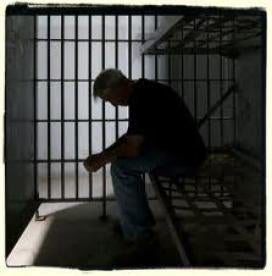On October 26, 2011, Joel Esquenazi was sentenced to 15 years in prison for committing and conspiring to commit both money laundering and violations of the Foreign Corrupt Practices Act (“FCPA”). Esquenazi is the former president of Terra Telecommunications Corporation (“Terra”), an international telecommunications company. According to the U.S. Department of Justice (“DOJ”), this is the longest prison sentence yet imposed in a case involving the FCPA.
In a 2009 indictment, the DOJ alleged that Esquenazi authorized payments of bribes by wire and intrabank transfers to successive Directors of International Relations of Telecommunications D’Haiti (“Haiti Teleco”), the Republic of Haiti’s state-owned national telecommunications company. The purpose of the bribes was to secure business advantages for Terra, including continuation of its connection to Haiti Teleco’s telecommunications lines, preferred telecommunications rates, and additional monetary benefits.
The indictment alleges that, to disguise the payments, Esquenazi caused them to be made for fictional “consulting services” to various shell or intermediary companies chosen by the Directors of Haiti Teleco. The payments were falsely recorded as “commissions” or “consulting fees” on Terra’s financial, banking, and accounting documents.
Carlos Rodriguez, the former executive vice president of Terra, was also sentenced to seven years in prison for his participation in the bribery scheme.
In addition to these lengthy prison sentences, Esquenazi was ordered to pay a $2,100 assessment, and he and his co-defendants are jointly and severally liable for restitution in the amount of $2.2 million. A lump sum of $2,100 is due immediately. While Mr. Esquenazi is incarcerated, he is obligated to pay toward the order 50% of any wages he earns in a Federal Prison Industries job or, if he does not have a job, $25.00 per quarter.
Esquenazi and Rodriguez are not the first to face imprisonment in connection with the Haiti Teleco scandal. In January 2010, Antonio Perez, a former controller at Terra, was sentenced to 24 months in prison for money laundering and conspiring to violate the FCPA. Juan Diaz and Jean Fourcand, two third-party intermediaries, were also sentenced to 57 months and 6 months respectively for receiving and transmitting bribery payments.
“This sentence . . . is a stark reminder to executives that bribing government officials to secure business advantages is a serious crime with serious consequences,” said Assistant Attorney General Lanny A. Breuer of the DOJ’s Criminal Division. “As today’s sentence shows, we will continue to hold accountable individuals and companies who engage in such corruption.”
We think the Terra case is notable because it underscores the Government’s willingness to go after individuals, especially senior managers of companies involved in bribery schemes. The DOJ has said repeatedly in public settings—and most senior managers would likely agree—that the possibility of prison time is a highly effective deterrent.
The case is also notable because of the apparent cooperation between the DOJ and the Haitian authorities, which continues the trend of the U.S. government working in tandem with authorities in foreign countries—even less-developed countries like Haiti—to bring enforcement actions.
The lawyers for Esquenazi and Rodriguez indicated both men will appeal their convictions. According to Rodriguez’s lawyer, the appeal may be based in part on a statement issued by Haiti’s former Prime Minister, Jean-Max Bellerive, that defined Haiti Teleco as a private company. The FCPA, which prohibits illicit payments to “foreign officials,” would not typically cover a bribe solely to the benefit of a private individual.
The DOJ has traditionally taken an expansive view of what constitutes a government-owned or -controlled entity, and courts have been willing to defer to the DOJ’s view. See, e.g., Federal Judge Upholds DOJ’s Expansive Application Of FCPA (regarding the decision by a U.S. District Court in April 2011 to uphold the DOJ’s broad view of the term “instrumentalities” in a prosecution brought against Lindsey Manufacturing Company and several of its officers and employees). It therefore seems probable that a court would agree with the DOJ’s assertion that Haiti Teleco is a government-owned or -controlled entity, and thus that employees of Haiti Teleco would be considered foreign officials under the FCPA. In an environment of such vigorous enforcement, and given the significant penalties that may be imposed against individuals and entities alike, companies and individuals conducting business overseas need to ensure they maintain and follow robust anti-corruption compliance processes.


 />i
/>i

